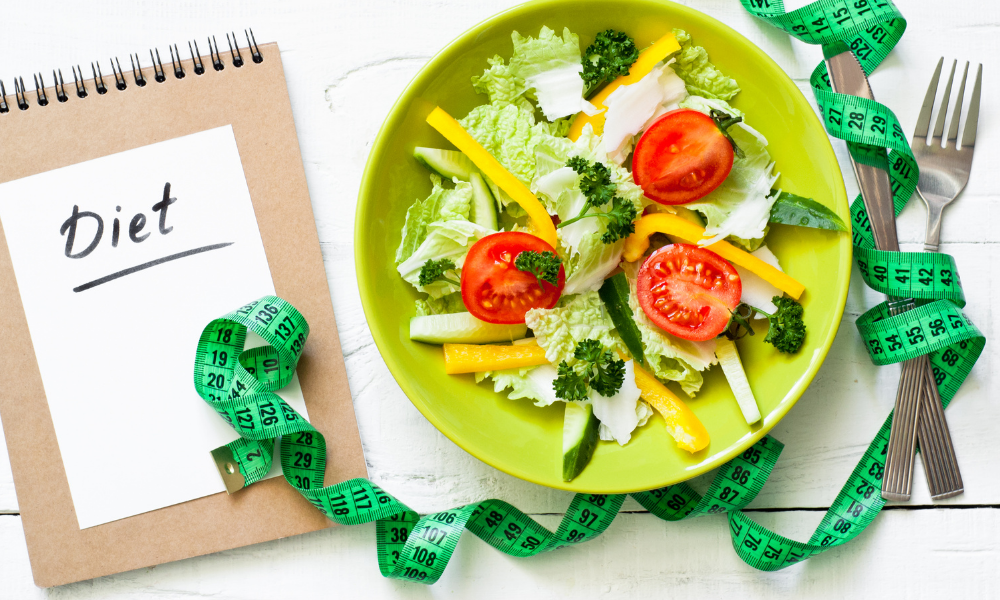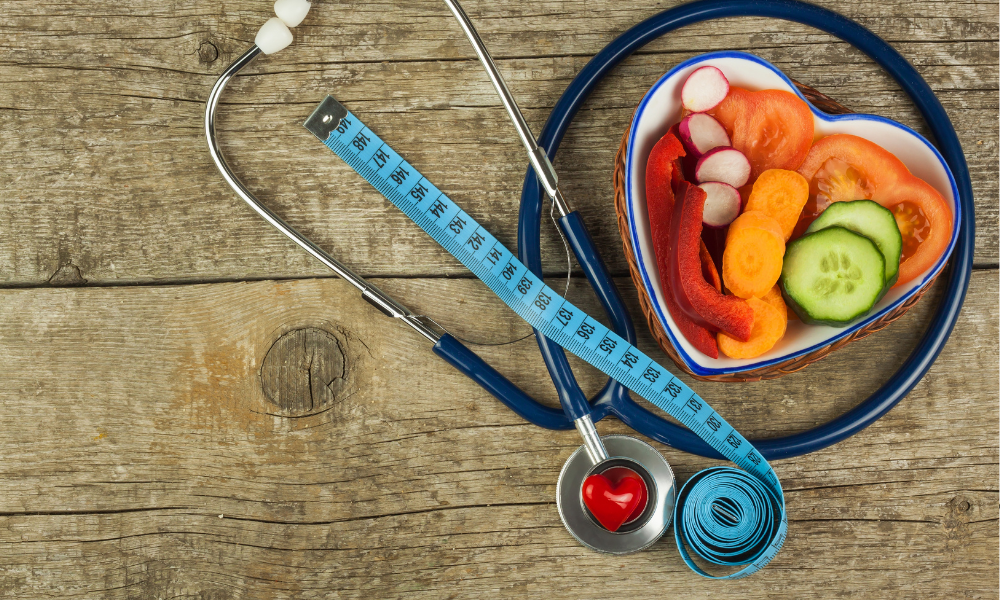Bariatric surgery is a serious step towards losing weight and it’s not just about getting off the operating table. Diet after surgery is critical to success. The first 30 days are especially critical as your body heals and adjusts to the new conditions of your stomach. You will start with liquid food and gradually increase until you can eat solid food. Make sure you eat small amounts and focus on protein-rich, nutrient-dense foods. Your nutrition plan will be a key element in providing your body with everything it needs and ensuring that you stay healthy in the long term.
Basics of bariatric surgery Diet
After bariatric surgery, following a special diet is crucial for healing and long-term success. In the first few weeks, this diet consists mainly of liquids and very soft foods. The body must adapt to the altered digestive conditions and food intake must take this process into account. Initially, protein-rich liquids such as clear broths, defatted soups and protein shakes are important to support the healing process and meet nutrient requirements. Over time, pureed foods and later soft foods are introduced. Sugary and fatty foods should be avoided to prevent weight gain and avoid digestive complications. Your dietitian will give you a precise plan to follow to protect your new smaller stomach size and ensure adequate nutrition.
The first few days after bariatric surgery
Immediately after bariatric surgery, it is important to carefully accustom your body to new eating habits. The first few days are mainly characterized by a liquid diet. You start with clear broths and low-fat bouillons to give your stomach a chance to recover from the operation. Sugary drinks and caffeinated products are initially taboo. The aim is to give your body the nutrients it needs without overloading it. Keep portions small, usually no more than a few tablespoons at a time. Your doctor or nutritionist will give you a precise plan on how to gradually increase your food intake. This plan is crucial for successful healing and adjustment to your new lifestyle.

Week 1: Liquid diet – What can you drink?
In the first week after bariatric surgery, it is important that you stick strictly to a liquid diet as your stomach needs to heal. It’s all about giving your body the rest it needs while making sure you stay hydrated and get nutrients. Your drink list should mainly include clear liquids:
- Water, but no fizzy drinks to avoid bloating
- Low fat broth, clear and without solids
- Low-sugar, clear electrolyte drinks to keep you hydrated
- Decaffeinated tea, lukewarm or warm
- Decaffeinated coffee, black and without dairy products or sugar
Important: Avoid sugar, caffeine, carbonated drinks and any solid foods. This can be very challenging at first, but remember, your goal is to give your stomach a chance to heal safely and minimize the risk of complications. Fluids need to be drunk slowly; take small sips to prevent nausea and vomiting. This part of your diet is crucial to your success after surgery.
Week 2: Pureed food – how to organize your meals
In the second week after your bariatric surgery, it’s time for pureed food. Away with the liquids, towards a little more texture – but still gentle on the stomach. The aim is to make the transition from liquid to solid food gentle. Make sure that all foods are pureed nice and smooth, without any chunks that could irritate your sensitive stomach. You should also eat more protein now to support healing and build muscle. Here are a few tips for a balanced pureed diet:
- Pack in protein: Yogurt, soft eggs or pureed beans can be a good source.
- Don’t forget vegetables and fruit: These should also be pureed so that they are easy to digest.
- You should still avoid fats and sugar, as these can put a strain on your diet during this phase.
- Eating slowly and chewing well, even if it is pureed, will help your digestion and make you feel full.
- Use this phase to get used to smaller portions and consciously enjoy every meal. This will prepare your body optimally for the next phase.
Week 3: Soft food – transition to solid food
Week 3 of the diet after bariatric surgery is all about softer foods to prepare for the transition to solid foods. At this stage, your stomach is ready for a little more variety, but it’s important to take it slow. Focus on protein-rich foods such as soft eggs, low-fat cheese or mashed beans. Soft fruits and vegetables, such as bananas or cooked carrots, are also okay now. However, you should still eat small portions and chew well. Remember that your tummy is still healing. So don’t rush it – still take it easy and listen to your body. If something doesn’t sit right, leave it out for now. This week is a crucial step towards a normal diet, so take the time your body needs.
Week 4: Introducing solid foods – dos and don’ts
Week 4 marks the beginning of an important step: your body is now ready for solid foods. But be careful, not all foods are equally welcome. Start with soft, pureed foods, such as finely mashed fruit and vegetables or lean protein puree. This is important to avoid overloading your stomach. Eat slowly and chew thoroughly to aid digestion and avoid possible vomiting.
Dos:
Eat tender, protein-rich foods
Puree vegetables and fruit well
Eat slowly and chew each bite thoroughly
Don’ts:
Avoid hard, chewy or fibrous foods
Do not swallow large bites or whole foods
Eating or drinking too quickly, which can lead to stomach discomfort
Also remember to keep portions small and eat several small meals throughout the day. This will help your stomach get used to the new conditions. Be patient with yourself and listen to your body’s signals.

Nutrient requirements and supplementation
When losing weight after bariatric surgery, it is important to ensure the right nutrient intake. The body can no longer absorb as many nutrients because the stomach is smaller. So you need to make sure you get all the essential vitamins and minerals. Supplements are often necessary to avoid deficiencies. This often involves:
- Multivitamins to be taken daily to meet vitamin requirements.
- Calcium and vitamin D to support bone health and prevent deficiencies.
- Iron, especially important for women, to prevent anemia.
- Vitamin B12, as absorption may be impaired by the new stomach anatomy.
Your nutrition team will give you a personalized plan so you know what supplements you need and in what dosage. It is crucial to take them consistently and have regular blood tests to keep an eye on your nutrient balance.
Common problems and their solutions in the first phase
You may experience some challenges in the first few days after bariatric surgery. It is quite normal for your body to need a period of adjustment. Here are a few typical problems and what you can do about them:
- Hydration: dehydration is a common problem because you may drink less. Make sure to take small sips regularly instead of drinking a lot at once.
- Nutrient deficiency: Your body absorbs fewer nutrients. Vitamins and minerals in the form of supplements can help prevent deficiencies.
- Digestive problems: Nausea and vomiting can occur if you eat too quickly or don’t chew your food well. Eat slowly, take small bites and chew thoroughly.
- Adjust eating habits: It can be difficult to get used to the smaller amount of food. Divide your meals into several small portions throughout the day to increase the feeling of fullness.
These problems are usually only temporary. However, if you are concerned, consult your doctor. He or she can give you further tips or make adjustments to your diet.
Summary and tips for a successful start
The first phase after bariatric surgery is crucial, and a well-planned diet is essential for your health and weight loss success. In the first few days, the focus is on liquids to avoid dehydration and to avoid stressing the stomach. From the second week onwards, you can introduce pureed foods and protein drinks. From the third week, it’s time for soft foods, and after about a month you can gradually start eating solid foods again.
Here are some quick tips to get you off to a good start:
- Stay hydrated. Drink small sips and spread your fluid intake throughout the day to avoid overloading your new stomach volume.
- Make sure you eat high-quality proteins to support the healing process and maintain muscle mass.
- Avoid sugary, fatty and highly processed foods to make it easier on your stomach and avoid unwanted complications.
- Listen to your body and eat slowly. This will help you avoid overeating and discomfort.
- Don’t forget that your body and digestive system need time to adapt to the new situation. This initial phase is an investment in your health and future.
Please visit our blog page to read our other articles that will help you on your weight loss journey. You may also be interested in the posts we share on our Instagram page.
